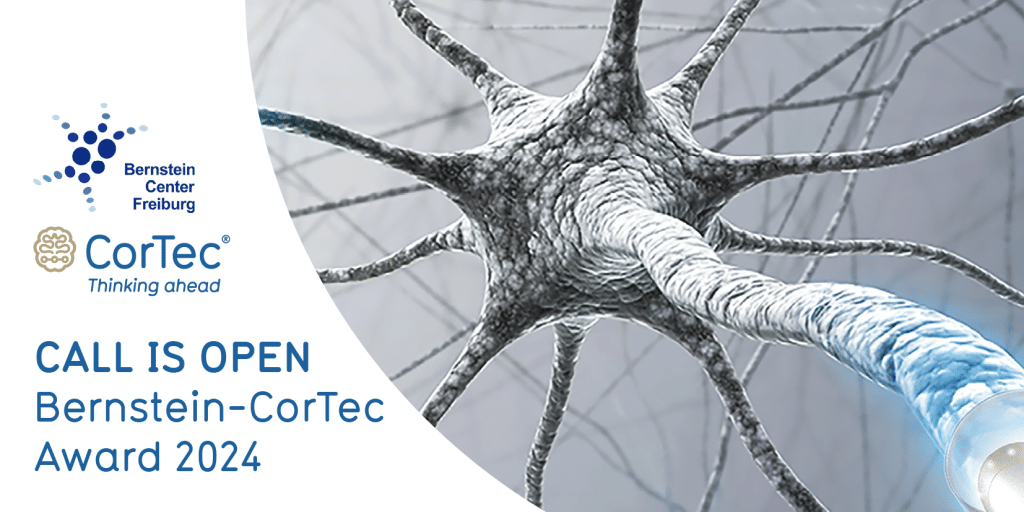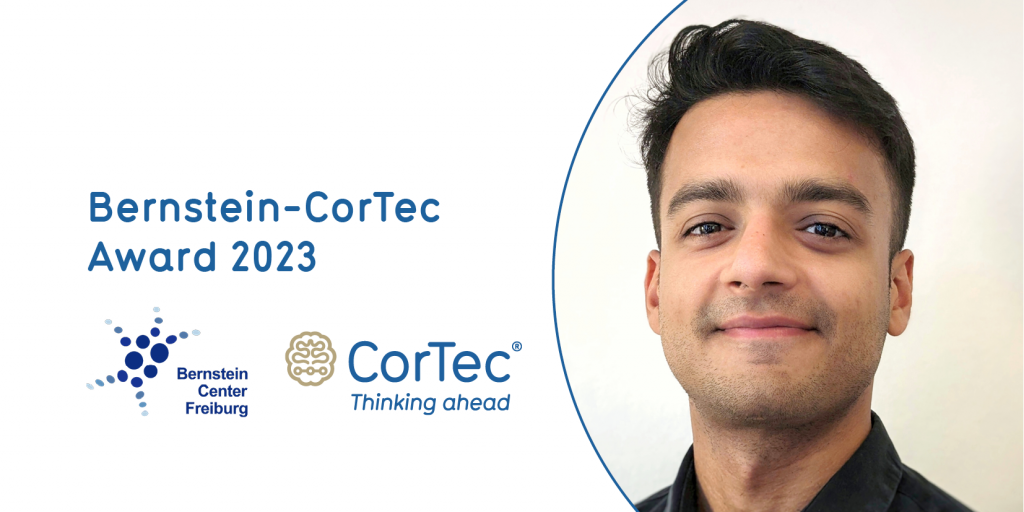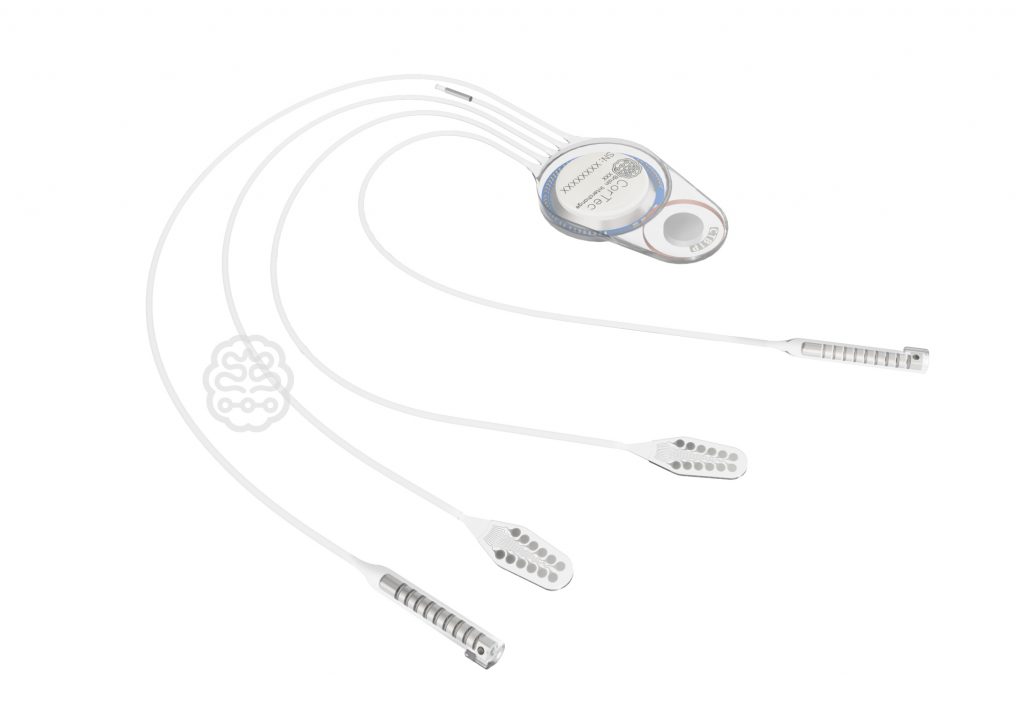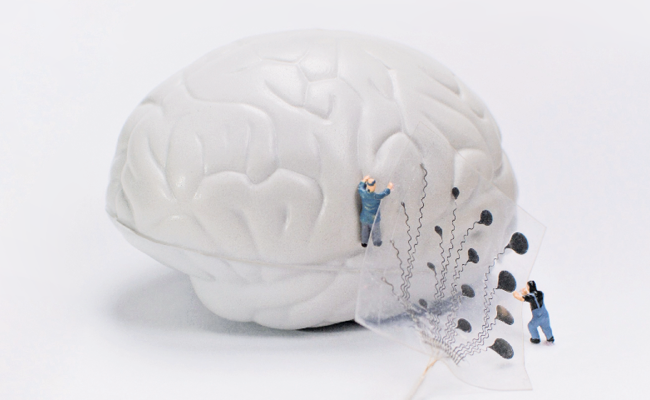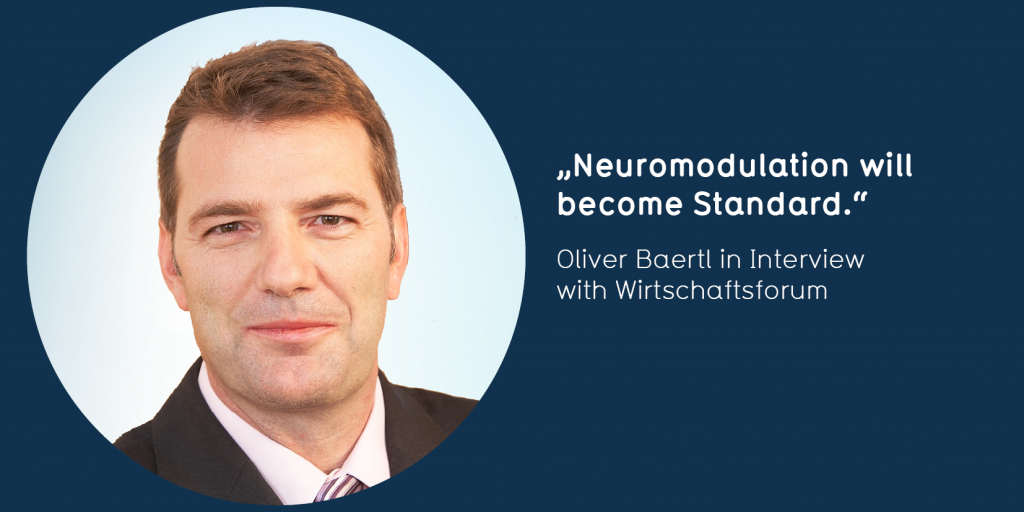This year marks the 5th anniversary of the Bernstein-CorTec Award. Established in 2020, this award recognizes exceptional studies at the University of Freiburg that advance the fields of computational neuroscience and neurotechnology.
The prize is endowed with 1.000 € and will this year be conferred for a PhD thesis.
Nominations should be submitted not later than June 30, 2024 via e-mail to Mrs. Gundel Jaeger.
More information can be found on the Bernstein Center Freiburg website
About the Bernstein-CorTec Award:
The Bernstein-CorTec Award was founded and is funded by the Bernstein Center Freiburg and CorTec. First awarded in 2020, this collaboration between CorTec and the Bernstein Center Freiburg recognizes exceptional master’s and doctoral theses in the interdisciplinary field of neurotechnology and computational neuroscience.
An Award Committee, installed by the Bernstein Center Freiburg (BCF) on behalf of the University of Freiburg, conducts the scientific evaluation of the proposed theses. The previous award was given to Aadhar Sharma for his Master’s Thesis, “The Dynamics of Adult Neurogenesis in the Dentate Gyrus.”
